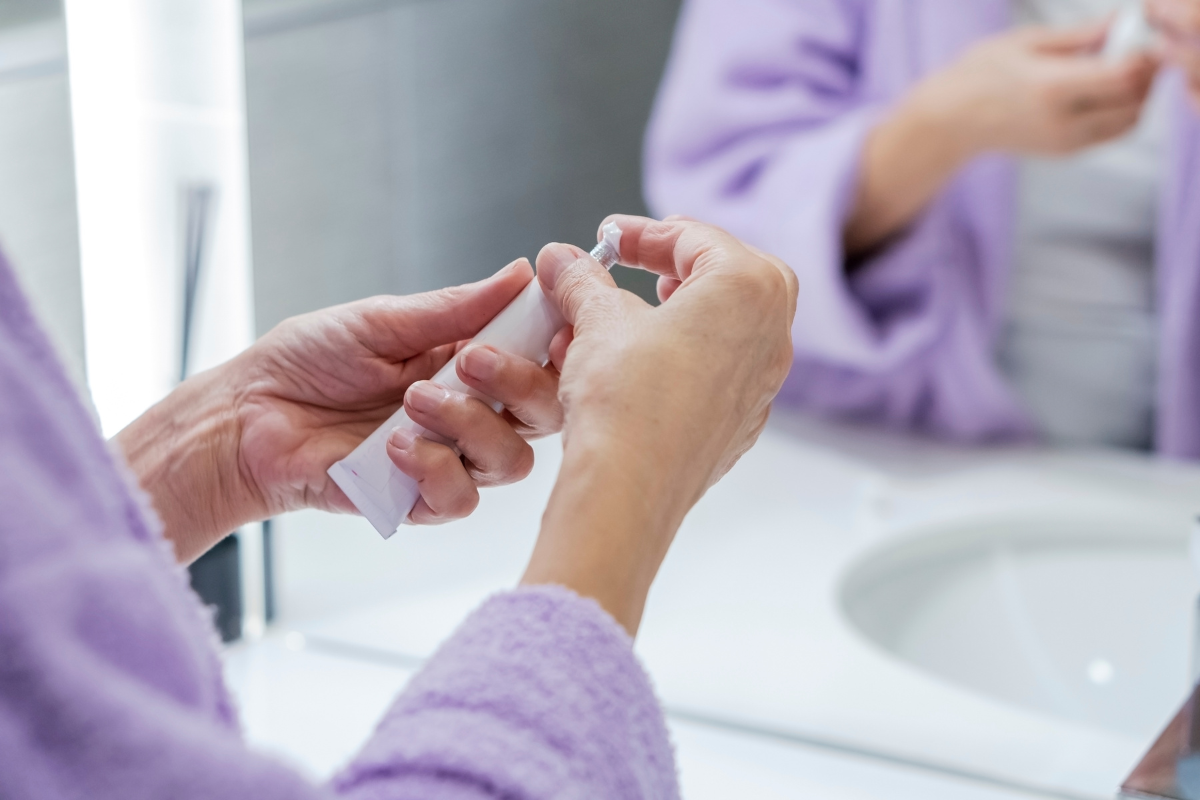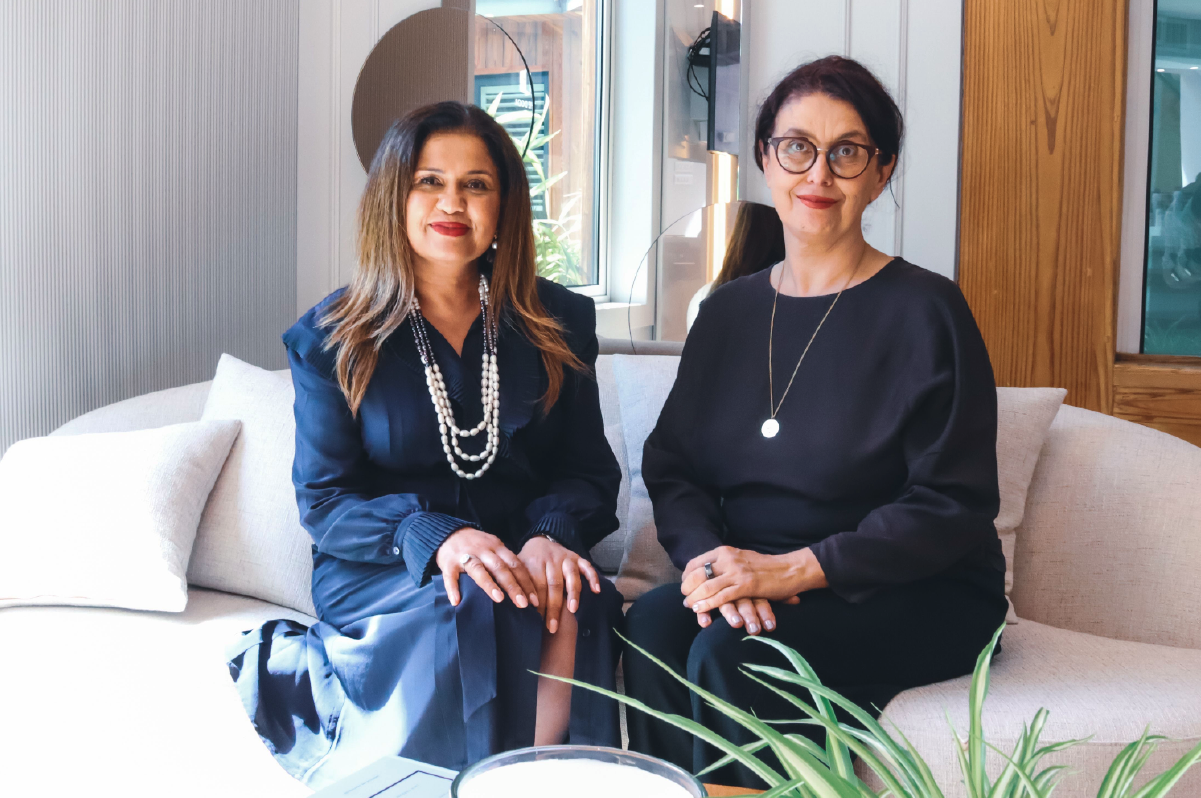
While menopause is a natural part of aging, it can be a challenging phase in a woman’s life. From hot flashes to a decrease in your sex drive, there are many symptoms that can appear during this time. For women currently going through menopause or those nearing perimenopausal age, the risk of developing osteoporosis can be a very real concern. Affecting 3.5 million people in the UK osteoporosis is a condition that severely weakens your bones and, as women enter menopause, there is an increased risk of developing the bone disease. But why does menopause cause osteoporosis and what can be done to prevent it? Let’s find out.
What is Osteoporosis?
Osteoporosis is a condition that affects your bones. As you age your bones lose strength and mass, leading to weak, brittle bones, and a higher risk of fractures and breaks. For women their bone density and bone mass peaks in their early 20s and will begin to decline around 35, but this can vary from person to person. Often people are unaware they have osteoporosis until they experience a broken bone or fracture. But a bone density test can be taken to establish whether you have the condition.
While the condition can affect men and women of all ages, those most at risk are women that have gone through menopause. In fact 1 in 2 women over 50 will break a bone due to osteoporosis so it’s incredibly important as a woman you take care of your bones, especially as you age.
But why are women so prone to the condition?
Well, it all comes down to your hormones – or lack thereof.
Why Does Menopause Cause Osteoporosis?
During menopause the rate of bone loss rapidly increases. On average women lose up to 10% of their bone mass with some losing as much as 20%. While there are many factors that can contribute to the onset of osteoporosis, a decrease in your estrogen levels is a major cause.
Estrogen’s Role in Bone Health
Estrogen is a hormone that plays a crucial role in maintaining bone density in women and is essential to your bone health. It helps keep your bones healthy in two ways. First, it encourages the activity of osteoblasts which are the cells responsible for creating new bone. Secondly, it slows down the effect of osteoclasts – the cells that work to break down bone. That’s why ensuring you have enough estrogen helps your body in regulating your bone mass.
Menopause and Estrogen Levels
During your reproductive years, estrogen levels are typically high which keeps your bones strong and healthy. Then, during menopause, estrogen levels drop significantly. Most women are familiar with the many symptoms menopause can cause from headaches, to mood swings to pain during sex. However, the effect it can have on bones where more bone is broken down than is being formed, is less well known.
Other Contributing Factors
While the condition most often caused by a drop in estrogen levels there are several other factors that can increase your risk of developing the bone disease including:
- Genetics – a family history of osteoporosis can increase your risk of developing the condition.
- Poor diet – not getting each vitamin in your diet such as vitamin D, calcium, vitamin K, magnesium and zinc.
- Body weight – women with a lower body weight are at a higher risk of osteoporosis.
- Smoking and excessive alcohol consumption
- Lack of exercise
“Osteoporosis is a common condition in older women but it doesn’t have to be an inevitable part of menopause and the aging process. Understanding the link between your hormones and osteoporosis will help you in taking proactive steps to maintain your bone health as you enter this phase of your life. With the right lifestyle choices and hormonal treatment in place you can prevent and treat the condition and ensure your bones remain strong.”
– Dr Elaine McQuade
How to Prevent Osteoporosis After Menopause
So, now you know why menopause causes osteoporosis, but what can you do to prevent it? There are several ways you can strengthen your bones and decrease your risk of developing osteoporosis following the menopause:
- Following a healthy diet
Ensuring you eat a healthy diet full of nutrient rich foods will give your bones that added boost. Choose foods that are high in protein, omega-3 fatty acids, and packed full of vitamins and minerals.
You can check out some of our delicious hormonal balancing recipes to help you through the menopause in another of our recent blogs.
- Staying active
As we age we tend to become less active. However, engaging in regular weight training and muscle-strengthening exercises will help maintain bone density while helping balance hormones and your mental health.
- Hormone replacement therapy (HRT)
With hormones playing such a key role in the development and protection of bones, hormone replacement therapy can be used to prevent and treat menopause induced osteoporosis.
Here at Marion Gluck we have pioneered the use of bioidentical hormones to support women going through menopause. Unlike synthetic estrogen, our bioidentical formula known as BHRT is derived from plants that have the same chemical structure as the estrogen produced in your body. This allows for fewer side effects and a high efficacy rate for those who choose this more natural form of HRT.
If you are experiencing symptoms of the menopause or are concerned about your bone health, then book a consultation with our expert hormone doctors. We will be able to discuss with you your symptoms and offer you the best course of treatment personalised to you.



